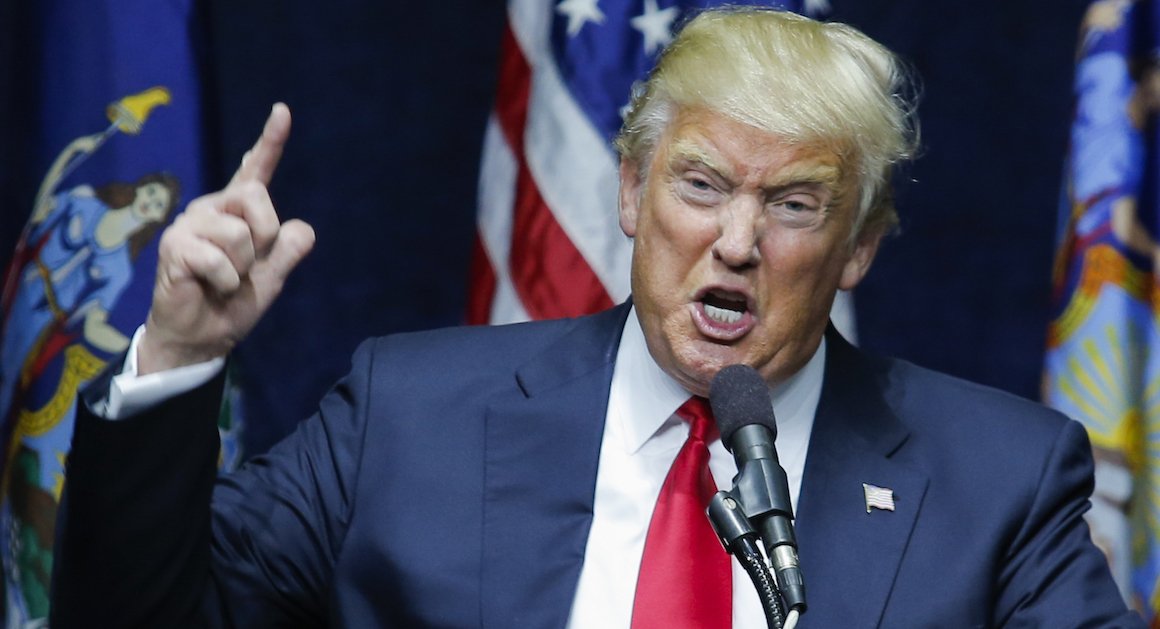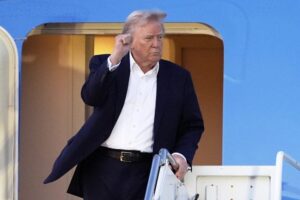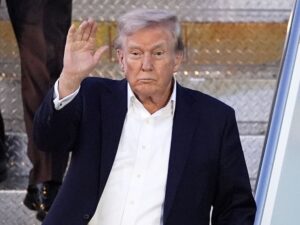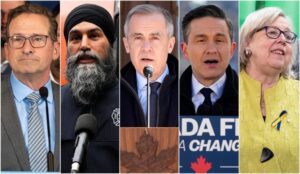
NATO chief Jens Stoltenberg has hit back against “any suggestion” countries within the alliance would not defend one another after former U.S. President Donald Trump said he would not abide by the collective defense clause at the heart of the alliance if reelected.
In what would be a stunning abandonment of a decades-long core U.S. commitment, Trump, who is running for re-election in November, said during a campaign event Saturday he would encourage Russia to do “whatever the hell they want” to any NATO member country that doesn’t meet spending guidelines and would not offer such a country U.S. protection.
In a statement Sunday, Stoltenberg said such comments put European and American soldiers at an increased risk.
“Any suggestion that allies will not defend each other undermines all of our security, including that of the US, and puts American and European soldiers at increased risk,” Stoltenberg said.
“I expect that regardless of who wins the presidential election the U.S. will remain a strong and committed NATO Ally,” he said, while also stressing that any attack on a NATO country would be “met with a united and forceful response.”
Trump’s comments — which come amid an on-going war in Europe and rising concerns about Chinese activity in the South China Sea and toward Taiwan — will likely raise fresh questions among allies in Europe and Asia over the strength of U.S. commitments.
During his time in office, Trump repeatedly railed against spending disparities within NATO and accused some countries of not meeting their obligations. He also criticized American defense pacts with Asian allies Japan and South Korea.
But the latest comments – the most direct indication he does not intend to defend NATO allies from Russian attack if he is elected – land at a time of starkly different circumstances compared to his time in office.
NATO is now heavily involved in supporting Ukraine’s defense following Russia’s 2022 full-scale invasion, which has sparked a mass humanitarian crisis, plunged Europe into its largest conflict since the Second World War and seen Russian leader Vladimir Putin accused of war crimes by the International Criminal Court.
The U.S. and its allies have supported Ukraine with crucial weaponry, training and economic support, though they have not sent troops to Ukraine, which is not a NATO member. The conflict has raised concerns Putin may have further expansionist ambitions, which the leader denies, or that a NATO country may become directly embroiled.
Russia’s invasion of its neighbor prompted Sweden and Finland to seek NATO membership and the collective protection it affords. Finland joined NATO in April 2023, doubling the alliance’s border with Russia. Sweden has faced numerous delays in its path to accession, notably from Turkey but has since made progress towards joining.
The NATO bloc has also moved to deepen collaboration with countries in the Indo-Pacific amid concerns about an increasingly assertive China. Separately, Washington has strengthened coordination with Japan and Korea, which are also warily monitoring ramped-up aggression from North Korea.
Japan, South Korea and the Philippines are all treaty allies with the United States in partnerships that date back decades and have been crucial to Washington’s military influence in the Pacific since the end of the Second World War.
The White House on Saturday slammed Trump’s comments as “appalling and unhinged” and contrasted them with President Joe Biden’s efforts to bolster American alliances for its national security.
Several European leaders have condemned Trump’s comments.
The European Union’s foreign policy chief Josep Borrell said Monday that “NATO cannot be an ‘a la carte’ military alliance… depending on the humor of the president of the US.”
European Council President Charles Michel said in a post on X, “Reckless statements on NATO’s security and Art 5 solidarity serve only Putin’s interest. They do not bring more security or peace to the world,” referring to the collective defense clause.
Meanwhile, Polish Prime Minister Donald Tusk said “there is no alternative to the EU, transatlantic cooperation and NATO.”
“The words that illustrate the idea of solidarity – ‘One for all, all for one’ – are the basis of the philosophy of modern Europe and the most important value of contemporary Poland. This requires determined actions for the European community, especially in the context of threats,” Tusk said Monday.
Estonian Prime Minister Kaja Kallas told reporters on Monday that Trump’s comments are “something to maybe wake up some of the allies who haven’t done that much.”






